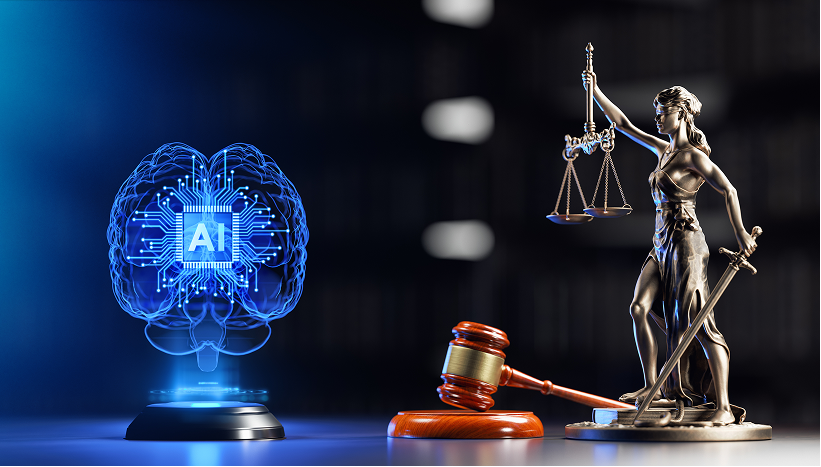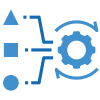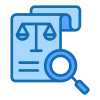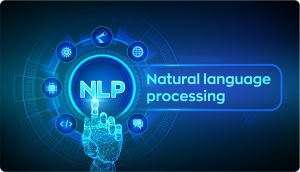
In 2025, it’s impossible to ignore the ubiquity of AI for legal research and repetitive task automation. Previously, we explored the merits of AI-led tools in addressing paralegal burnout. Our current blog will examine the role of technology as your legal firm’s paralegal support and the key to building a competitive edge.
The Urgency to Explore AI for Law Firms
Law firms and healthcare, government, and consulting companies mostly hire paralegals. Despite the hiring slowdown and great resignation over the past few years, the employment rate for legal professionals has increased rapidly. Paralegal employment trends are attributable to the generational shifts in the workforce (i.e., the exit of workers from baby boomers and GenX generations) and search for replacements for workers who migrated to different professions. Irrespective of the job market research and trajectories, there’s tremendous scope for alleviating overwork and burnout rates in the legal field.
The 2024 Bloomberg Law Well-Being Report reveals that at least 50% of lawyers are experiencing symptoms of burnout. It goes on to say that paralegals and legal assistants experience similar levels of work stress and pressure.
Paralegals play an indispensable role in piecing together the essentials of legal cases, such as legal documents, litigation and case-specific paperwork, legal research, due diligence reports, and stakeholder communication without exceeding the firm’s budget and case timeline. A paralegal’s job is to support attorneys and lawyers in legal cases. Therefore, they cannot afford errors, inaccuracies, and outdated information in documents, reports, and case-specific records. However, the overwhelming repetition and volume of administrative
and clerical duties of a paralegal increase the probability of errors, inefficiencies, burnout rates, and losses.
Let’s look at the snapshot of research-oriented paralegal tasks involved in case preparation.

Contract Analysis
A large chunk of paralegal tasks involves thorough analysis of legal contracts to Identify risks, ensure compliance, and review legal obligations. Contract analysis requires extensive manual research and knowledge of legal practices and prevailing regulations.

Due Diligence
A paralegal also performs due diligence tasks to confirm and validate the authenticity of case-related information and documents. Their due diligence tasks involve running company backgrounds, reviewing financial history and records, credit checks, and gathering facts and updates on past or current legal disputes to support attorneys and lawyers.

Regulatory Compliance
Constant research guides informed legal decisions and practices. Paralegals’ role in understanding and keeping up with federal and statutory laws cannot be understated. Further, they are subjected to gathering crucial information on changes and enforcement by administrative agencies and city councils. They must follow case laws and stay ahead of court decisions to record and refer to in their daily paralegal tasks.

Litigation Research
Paralegal research is always backed by facts, case precedents, and statutes. Paralegals work extensively on verifying citations, building legal arguments, and corroborating facts essential for the case. Litigation research involves gathering objective facts and hence requires accuracy and reliability.

E-Discovery & Document Review
From researching legal databases to sorting, analyzing, and managing large volumes of case files and documents, paralegals incorporate research techniques to gather insights from primary and secondary sources. They must refer to their findings to publish materials that the lawyers and attorneys will use in casework.
How AI is Addressing Research Challenges Across Law Firms
In 2024, Thomson Reuter’s Future of Professionals Report survey confirmed that using AI in law firms can save 4 hours of weekly work, generating a new billable time of $100,000 per lawyer annually! The survey also recorded positive perceptions of its respondents. About 77% of the survey participants reportedly believe in AI’s transformation impact on their work by the next five years, and 72% of legal professionals viewed the technology as a ‘force for good’ in their profession.
Essentially, solutions powered by AI guarantee transformation benefits like:

Manual and Repetitive Task Automation
AI-led automation combines natural language processing (NLP), robotic process automation, and machine learning (ML) algorithms to automate manually led, repetitive tasks based on pre-defined rules, training on data sets, and comprehension of tasks that require actions mimicking human efforts.

Document Review and Contract Analysis
AI tools are invaluable in leveraging NLP, ML, and computer vision to accurately analyze large data sets, documents, contracts, and reports. Advanced data and predictive analytics of AI can be optimized to generate case or project-specific recommendations.

Document Generation
AI and Gen AI tools revolutionize document generation and formatting capabilities to increase productivity and efficiency by eliminating standard document preparation processes like drafting, editing, deletion, pasting, etc.

Legal Research
AI tools are built to run industry-specific research and help summarize information across sources and platforms faster and more accurately.
Let us examine some of the challenges encountered by different law firms and how AI solution adoption helps eliminate them:
Challenges

Corporate law firms deal with high volumes of business contracts and legal documents binding between parties. They require constant review of contracts, regulatory changes, and due diligence for corporate mergers and acquisitions. When pressing deadlines, urgently completing contract analysis, and adhering to compliance requirements, paralegals need a helping hand to prevent delays and costly errors.
AI Solutions

Paralegals can leverage AI tools designed to perform automated contract analysis and real-time compliance tracking. These solutions are powered by ML algorithms trained on datasets to recognize and flag inconsistencies in contract documents. Paralegals can also adopt AI-driven due diligence reviews to authenticate contracts and legal documents.
Challenges

Paralegals must find relevant case precedents, analyze police reports, and analyze forensic evidence to support case files. They are responsible for concurrently supporting different cases and managing large case files.
AI Solutions

AI-powered legal research platforms allow case summarization and document categorization for trial preparation. These platforms collate data and facts essential for case evidence and testimonials in formats fit for presenting in the court of law.
Challenges
![]()
Paralegals working in immigration law firms must verify case law related to immigration policies, analyze visa and residency regulations, and track government rule changes.
AI Solutions

An AI-driven tool for immigration and visa document review helps analyze visa applications, run automated compliance checks, and keep up with immigration law updates in real-time.
Challenges

Employment firms must frequently research labor laws, analyze workplace trends, and investigate discrimination cases. Additionally, their paralegals are tasked with reviewing contracts and policy violations to prepare case summaries.
AI Solutions

AI-powered policy comparison and research tools enable automated case law research on labor disputes and conduct thorough contract analysis of employment agreements and supporting documents for clients from different businesses and industries.
Challenges

Real estate law firms’ paralegals deal with countless property contracts and documents that require verification of compliance with zoning laws and land-use regulations. They must keep track of real estate compliance requirements changes and update them to their legal teams and departments.
AI Solutions

Smart contract analysis led by AI tools for lease agreements also allows real-time compliance tracking and performs AI-powered property dispute research. The tools independently run these processes, freeing paralegals to focus on essential and meaningful legal tasks.
Challenges

Civil litigations require paralegals to draft pleadings and discoveries that require handling massive amounts of e-discovery documents, researching case precedents, and preparing for depositions and arbitrations. They also play an integral role in preparing trial checklists, interacting with court personnel, and tracking and managing citation verification.
AI Solutions

AI-driven e-discovery tools for civil litigation cases help automate case summarization. Tools leveraging advanced predictive analytics help forecast case outcomes by analyzing supporting documents, witness lists, and more.
The Future of AI in Paralegal Research: What’s Next?
The Thomson Reuters survey concluded that only 54% of the study participants are confident about articulating AI’s value-creation to their clients beyond greater efficiency. This is purely tied to the lack of trust, acceptance, and adoption gaps in the legal industry due to insufficient investment and use cases to demonstrate the long-term impact of AI tools. From a user perspective, AI and Gen AI tools augment manual efforts rather than eliminating and replacing the human workforce. They focus on more strategic and under-several aspects of the legal practice—client-centered experience.
AI and Gen AI skeptics may debate about the ethical concerns around bias, transparency, and privacy. However, the General Data Protection Regulation (GDPR) and California Consumer Privacy Act (CCPA) exercise strict vigilance of AI providers and their solutions to safeguard privacy and confidentiality, by emphasizing on the need for transparency and accountability towards clients and their data. The Formal 512 from the American Bar Association also provides ethical duties for law firms using Gen AI tools to enhance the efficiency and quality of legal services to clients.
Conclusion
By establishing ethical boundaries and transparency in AI-led workflows, legal firms and practices can elevate non-legal, administrative paralegal tasks like research, documentation, and data entry. AI adoption opens up opportunities for new roles and skill requirements to incorporate the technology into the underexplored realms of legal departments and businesses.
Is your legal firm seeking personalized guidance and solutions for building AI strategies?
At iTech, we plan and execute AI and ML development projects to integrate cutting-edge technology practices and give firms a competitive advantage in handling complex legal cases.
Talk to us!









